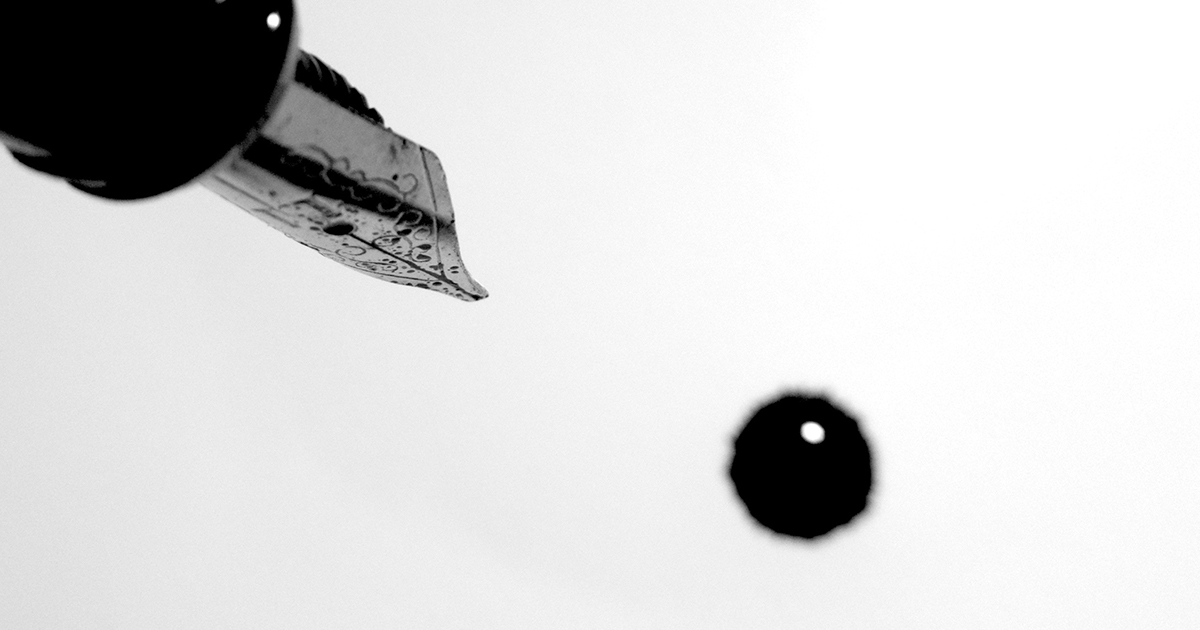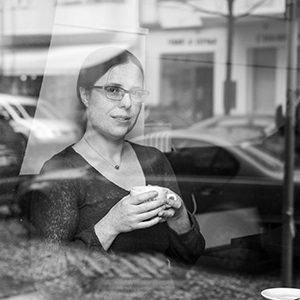WHY DIVERSITY IN WRITING LEADS TO BETTER LITERATURE
★ ★ ★ ★

By Erin O’Loughlin
I have a writer friend, a young, black, queer American woman, who has decided that she is only going to read female and/or queer authors from now on. Having grown up on the same classics of literature as the rest of us, she’s decided that she has had her fill of the white, male writer and his perspective of the world. Now she wants to read work from people who have something different to say.
She’s hardly alone in that. It’s not the first time I’ve heard women say that they are sick of reading the same male voices saying ostensibly the same things. For one woman, it was Jack Kerouac who pushed her over the edge. For another it was Ernest Hemmingway. Fairly privileged individuals, in the end, with fairly questionable attitudes to women. Why should these be the novels that literary-minded young women are given to cut their teeth on?
But Lionel Shriver, author of We need to talk about Kevin, thinks that diversity in literature is a slippery slope to an “incoherent, tedious, meandering and insensible pile of mixed-paper recycling.” She made this headline-grabbing statement in response to Random House’s aim by 2025 to have both their staff and their published authors reflect the diverse make-up of the UK population. Go and read Shriver’s full comments, and see how high it makes your eyebrows shoot up. “I’d been suffering under the misguided illusion that the purpose of mainstream publishers …was to sell and promote fine writing,” she snarked.
Now Lionel Shriver is an award-winning writer I have never read, so I cannot with any authority claim her writing is not “fine”. But I have personally avoided We need to talk about Kevin once I read that she “wasn’t interested” in the phenomenon of school shootings and she thinks they “keep happening because they keep happening”. Sorry, but I like my social commentary to be a bit smarter than that. She has also said that “It doesn’t require a professional imagination to deduce what churns [shooters’] minds in the lead-up,” but I disagree with her apparent conclusions that shooters are motivated by a psychopathic propensity to evil and the desire for publicity.
Shriver’s belief that she can easily imagine her way into the mind of a school-shooter is also at the base of her comments on diversity – she believes that as an intelligent person, she can easily imagine what someone else is experiencing. She fails to understand how much her world-view is biased by her identity as a white, middle-aged, American woman.
Shriver first really came on my radar in 2016 when she stood up at an Australian literary conference and announced to the room that cultural appropriation was a myth and anyone who said otherwise was a snowflake (or words to that effect), donning a Mexican sombrero in her final flourish of rebellion. Sure – because what marginalised people really want to hear from white people is that they are simply being over-sensitive. She regularly makes other headline-grabbing statements, stating in just one recent interview that the Irish Border is not the UK’s problem; the #metoo movement has gone too far; cultural appropriation is an author’s prerogative; and Northern Irish people stall developmentally at the age of 13.
Lionel Shriver complains in the above article that if she puts a black character in her books, she gets criticised for portraying race. She points to television series Black Mirror, which has a diverse cast and didn’t get criticised for it, despite being mostly written by a white man. “These rules are not enforced consistently,” she concludes. Again, I haven’t read Shriver’s work, but could the criticism being levelled at her be about her characterisation of a black person with dementia being led around on a leash, rather than say, her inclusion of a black person per se? But the character was only “incidentally” black, Ms Shriver moans, apparently believing that racial identity correlates to a colour that can be painted onto any character, rather than something that is deeply ingrained in the environments, cultures and experiences we are raised with. A white person writing a novel full of white characters and then retrospectively making them all black does not lead to an authentic representation of black culture. And writers should hopefully wish to have characters that seem authentic on the page.
Let’s look at Shriver’s nod to Black Mirror for a moment. This is a show that includes a high calibre, racially diverse cast (if we focus on race, and leave sexual identity and disability out of the diversity argument for a moment). There are no ‘affirmative action’ weak links in Black Mirror, just a cast of talented people from various backgrounds. Yet somehow Shriver believes that were this same mentality to be applied to literature, we can “safely infer” that diversity targets would lead to low-quality work being published. She clearly believes that white, heterosexual, able-bodied voices have a greater capacity for “fine” literature than, as she so dismissively puts it, “a gay transgender Caribbean who dropped out of school at seven and powers around town on a mobility scooter.” (And really, who wouldn’t want to read that book?)
There’s so much wrong with this idea. First, the assumption that people with diverse race, gender identity and ability levels aren’t already writing great literature. Second, the assumption that the reason they aren’t being published is because their work is inferior quality and not, say, because of their lack of access to a system that has been historically stacked against marginalised groups and is overwhelmingly run by white people. Third, the idea that this would somehow leave less space for Shriver’s own brand of writing (and that this would necessarily be a bad thing). Lastly, the idea that “fine” literature is more important to the reading public than seeing their experiences and aspirations reflected in print. This last is quite simply not true. Representation is hugely important to one’s sense of self-worth, and the validation of seeing people like yourself onscreen or on the page, being given value and status in the society you live in, is worth sacrificing a little quality for. But that’s a false dichotomy anyway – because that’s not the choice we have. There is a plethora of talented, diverse voices out there who can beat the pants off a Hemmingway, a Kerouac or a Shriver any day.
At the Brisbane conference where she donned a sombrero, Shriver argued that writing is inherently an act of imagination. But why should a young black woman have to grow up only reading about black people as “imagined” by a white woman? And if you do aim to include more diversity in your work, go for it, but don’t rely solely on your imagination. Imagine me a unicorn if you like, but research me a Native American. Otherwise we end up with generations of Tigerlilys and Disney-Pocahontases. It is possible to gather feedback on how well you’ve portrayed a certain identity—ask the people who live that identity. And if they tell you that you haven’t nailed it—make changes. Revise, with authenticity in mind. Because alongside the important drive for diversity and making sure diverse voices are given an opportunity to be heard, white writers (such as myself, and of course, Shriver) can make sure we do better too—by striving unflinchingly for authenticity in the voices we include in our writing. I’m pretty sure that’s only going to lead to better literature.

Erin O’Loughlin is a writer, translator and self-confessed foodie. Originally from Australia, she has lived all over the world including Japan, South Africa and Italy. Her work has been published by Leopardskin & Limes, Brilliant Flash Fiction and FTB Press. She lives in Berlin, Germany.

DEAR READER
At The Wild Word we are proud to present some of the best online writing around, as well as being a platform for new and emerging writers and artists.
If you have read the work in The Wild Word and like what we do, please put something in our tip jar.
THANK YOU FOR YOUR SUPPORT!























